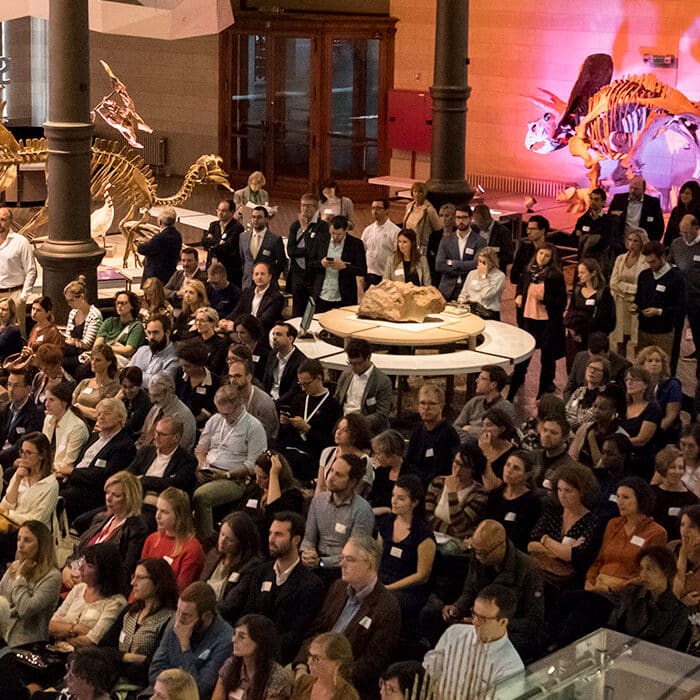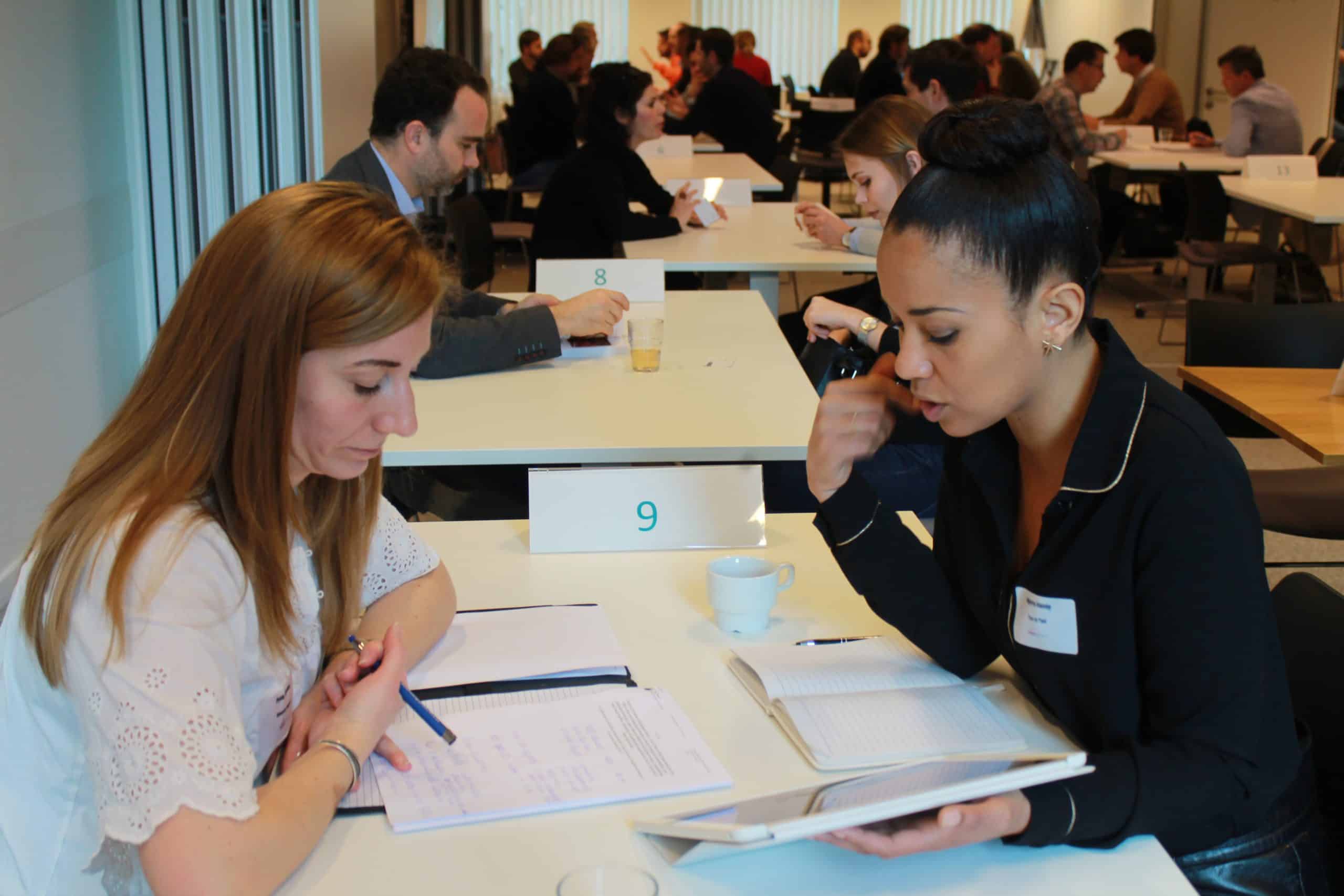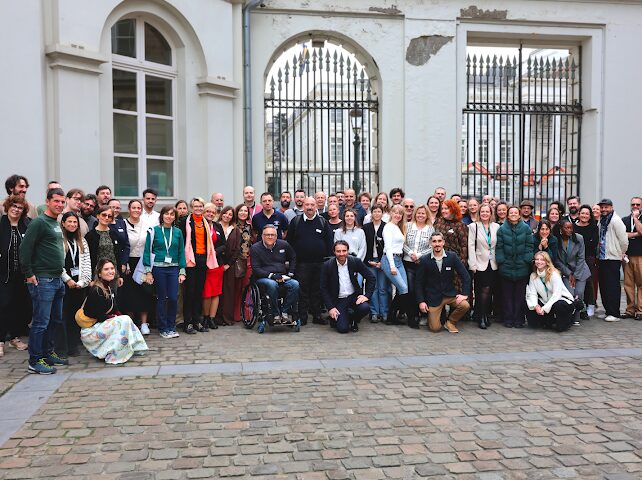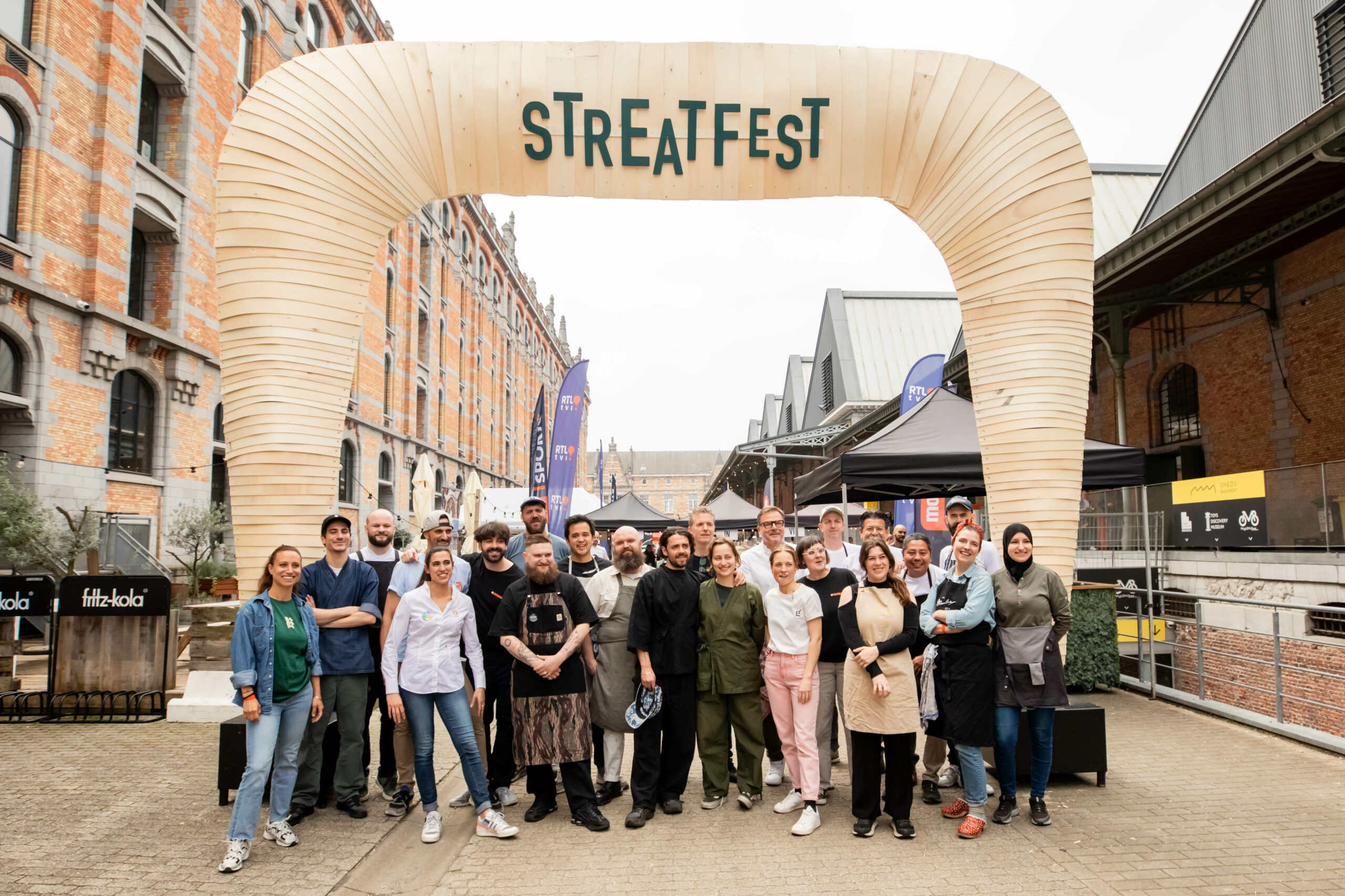During the health crisis, many companies were forced to pivot to the virtual world to maintain contact with their target audience. What will the events sector of tomorrow look like?

The best of two worlds
Coronavirus, an accelerator for new digital uses
The lockdown of most of the planet disrupted the events sector. In just a few weeks, companies and “MICE” events professionals had to rethink the organisation of their scientific congresses and international symposiums, revisit their training seminars and reinvent the format of professional exhibitions and trade shows. Digital had already made inroads before the health crisis, but it was never at the heart of events.
In record time, video conferencing services provided, often free, access to 100% virtual events around the world. Access to quality speakers, a risk of infection and travel costs reduced to virtually nothing, optimised work time…the benefits of remote working quickly conquered our screens.
However, over the following months, the motivation to take part in virtual events declined as “Zoom fatigue” set in, underscoring how hard it is to maintain an audience’s interest and gain its loyalty.
The new norm for events will be hybrid
In future, events will see the development of many new configurations and combinations of virtual and “in-person” events to create impact on a greater scale. Events professionals want to upgrade their strategy while including the need to reduce their carbon footprint and ensure the sustainability of events. As a result, virtual conferences will continue to be a preferred channel for transferring knowledge and communicating information in the future.
Relationships and the user experience rather than content

In addition, virtual events have shed light on the unique and irreplaceable nature of in-person meetings: they provide an opportunity to experiment with certain things, make interesting contacts for business, stimulate brainstorming and the joint creation of new projects…in other words, they enable innovation!
The new challenge for event organisers will be to provide added value to physical events and to provide attendees on site with an exclusive programme, world-renowned speakers, networking events and specialised workshops. The audience will be even more attentive to the return on investment of the expenses incurred for travel and to the long-term impact of attending events in person.
As a result, from now on, the experience provided to participants and the quality of exchanges will take priority over conference content.
A technology boom to connect the two worlds
While hybrid events will be the new norm, their management will require a set of multi-faceted skills. Event organisers will seek to appropriate the entire value chain: from the search for speakers to bring onsite, to facilitating all aspects of travel, and including the faultless organisation of the virtual and physical events.
Technology innovations are now at the heart of events to capture and retain the interest of virtual participants: event scenography, virtual reality and gaming to bring experiences to life, 2D, 3D and 4D platforms with avatars to facilitate networking, artificial intelligence to match participants by common interests, etc.
A major change in broadcasting and monetising event content
Prior to the health crisis, the main sources of live conference and trade show revenue were ticket sales and event sponsors.
What strategy and robust economic model should be implemented to generate viable revenue from hybrid events?
Optimise the revenue models of hybrid events
Events that were free before the pandemic will continue to be and will have to be managed like professional trade shows. The goal of organisers is to generate as much attendance as possible by facilitating in-person and remote access. In order to optimise sponsor and exhibitor revenue, engaging platforms which promote online networking, create spaces for individual meetings with prospects and for head-to-head product demos will need to be implemented.
In order to recover the entire sponsor budget, event organisers will target the commercialisation of a mix of options to strengthen their on-site and online presence: a stand at trade shows, a banner on the website, visibility during webinars, etc.
In this hybrid model, the data gathered before, during and after the event are a goldmine. Analysis of the interactions on the event’s platforms and apps will enable sponsors and exhibitors to target their actions on certain potential customers who showed interest and therefore improve lead conversion.
Create an engaging community
Professional events which had an admission fee before the pandemic will now operate like conferences. To optimise revenues from hybrid conferences and congresses, the strategy will consist in increasing the life-cycle of the event by moving towards a model which goes well beyond the three-day conference. The trick will be to create a permanent community around regular events in order to promote interaction between participants 365 days a year.
A medium is born
All-in-one platforms which can be fully personalised propose the development of a range of marketing tools around your event to lead and encourage communities to take action, thereby creating a new communication channel. It will contain digital content produced during the events, often reformatted, and completed with additional, downloadable content.
Events professionals must bring together different event opportunities (physical and virtual) and themed content in bundled format throughout the year. The event will become an entirely new medium which broadcasts informative, engaging, interactive and fun content to its community on a regular basis free of charge or on demand. Thanks to the development of all of these complementary tools, organisers will be able to offset the losses from 100% physical events.
The pandemic has disrupted the events sector, which is seeking new equilibrium by adapting its strategy and tools. While hybrid events have become the new standard, the challenge will be to mix the two communities via actual meetings. As the sector matures, event professionals will have to use the latest technology to ensure that participants located in different physical locations interact with virtual participants and provide them all with a unique experience and high-quality networking.
Extract from the Welcome city Lab (Paris) trend book to download here
Written by Véronique Renard – Manager of the hospitality.brussels cluster at hub.brussels
Sources :
- Interviews with Fréderic François, CEO at Fisa and Vinciane Morel de Westgaver, Head of EU Event Services at VO-Event
- The traditional business model for events is dead. The future is going to be a hybrid September 30, 2020
- Virtual Events Need a Better Business Model by Julius Solaris, October 29, 2020
- 9 major Event industry trends in 2021 by Josh Howarth, March 23, 2021



